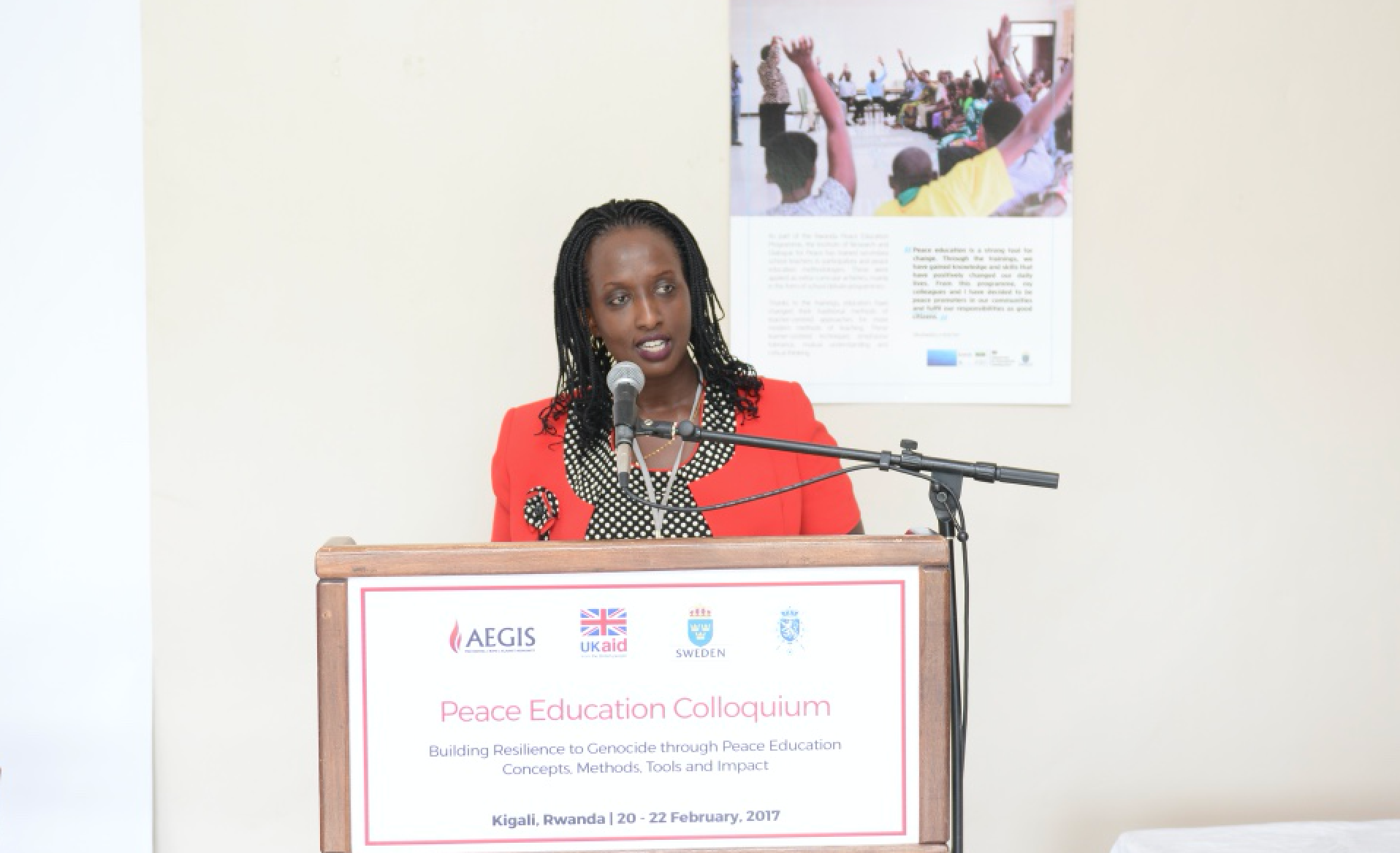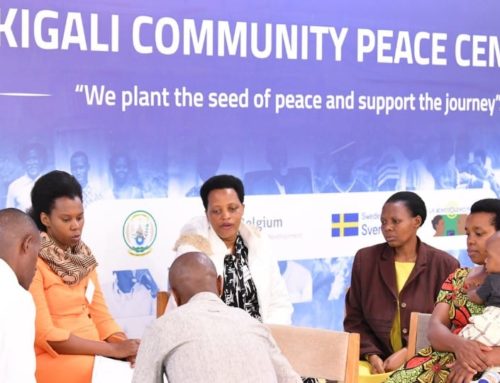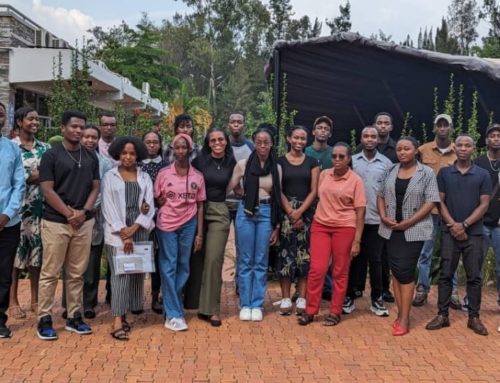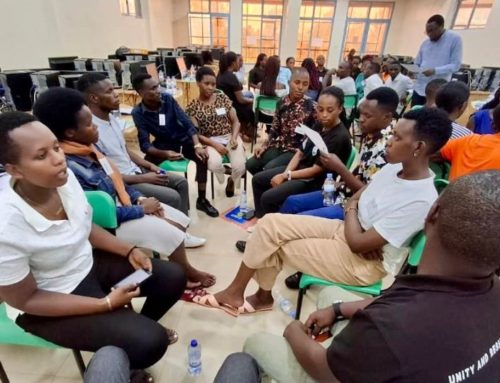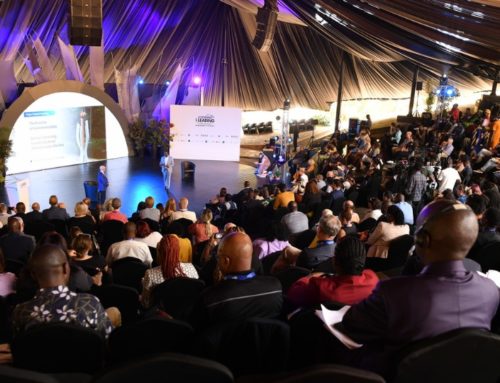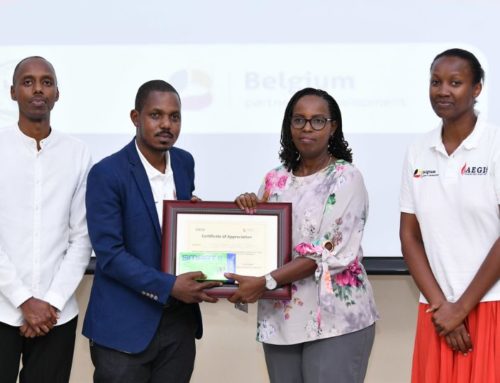Insights from Aegis Trust Programmes Director, Anita Kayirangwa:
Over the last week in Kigali, more than 100 experts from Rwanda and around the world met to examine best practice peace education. Throughout the three days of intense debate and discussion, participants heard from a wide variety of speakers who shared insights into what kind of peace education works well and how we can measure our impact on individual and societal change.
Having worked on peace education with Aegis Trust for a number of years, I was very interested in what policy makers and practitioners in other parts of the world had to share. Some of my key takeaways are detailed here.
Educators and Researchers Need to Work Together
Educators, both formal and informal, including teachers, parents and researchers, are key for sustainable peace. By gathering researchers and educators at the Kigali Genocide Memorial I saw how important is it for these two groups to work together. We must constantly assess how the latest academic research can improve how we teach about peace. For Rwanda, I am confident that the recommendations and the experiences shared at the conference will bring positive impacts to our communities. This is especially true for the next generation – our school aged young people.
We Need To Test Different Approaches
The recommendations that came out of the conference were wide ranging in scope and substance and we cannot allow them to simply live on paper. Aegis Trust, and our sister organisations around the world, need to work together, form new partnerships and test if these diverse ideas work in our communities and schools. Only by trying can we achieve our dream of building peaceful societies free from bullying, discrimination and conflict.
Measure Impact
I have no doubt that the discussions and recommendations from the conference will contribute to the behavioural changes we wish to see in our communities. But we need to know if they work, and how well different approaches work. I look forward to taking the measurement approaches detailed at the conference and working with our partners to assess the impact of our work. Once we have done this, we then need to communicate best practices to support peer learning. Aegis Trust is very keen to see more research and a stronger evidence base for peace education approaches so that we can constantly improve and refine how our facilitators deliver peace and values education in the communities we serve.
Seek Out Opportunities
Peace education is a partnership – between teachers and students, between parents and their children’s schools, between policy makers and researchers. We need to explore ways to partner with one another and with education institutions around the world in this journey to build sustainable peace among Rwandans.
I am especially excited about Aegis’ Education for Sustainable Peace in Rwanda programme and the impact it is already having among teachers and students. The programme is working with four key agents of change: educators, young people, decision makers and researchers. It aims to promote critical thinking, trust, empathy and personal responsibility among educators and young people and will do this by training Master Teacher Trainers, young people and by establishing a digital platform and resource centres called Peace Schools across Rwanda.
I hope that, through this new programme, we will lead the charge and bring on board new partners to contribute their own expertise and skills to this programme.
Peace is Possible
By working together, constantly learning from success stories, applying the right methodology, using the right tools and targeting influential change agents like educators, parents and young people, the journey to peace is possible. Urugendo rw’amahoro rurashoboka.

